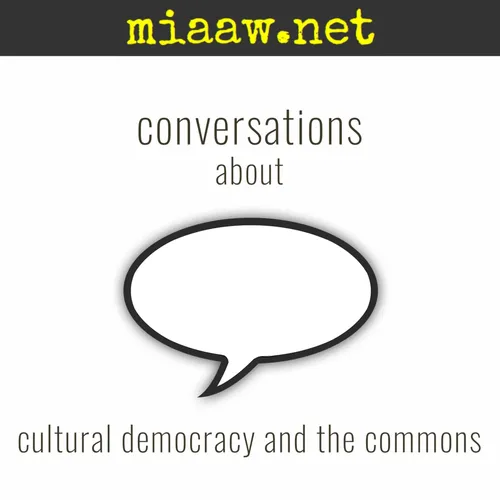
MIAAW.net
Miaaw.net: four monthly series, one a week, audio essays, conversations and discussions about cultural democracy and the commons.
Week 1: Meanwhile in an Abandoned Warehouse
Week 2: Genuine Inquiry
Week 3: A Culture of Possibility
Week 4: Common Practice
What is cultural democracy? How can we move towards it? How likely are we to achieve it? What does it have to do with "the arts"? What does it have to do with a post-digital future? What does it have to do with the commons?
- Update frequency
- every 7 days
- Average duration
- 37 minutes
- Episodes
- 284
- Years Active
- 2018 - 2025
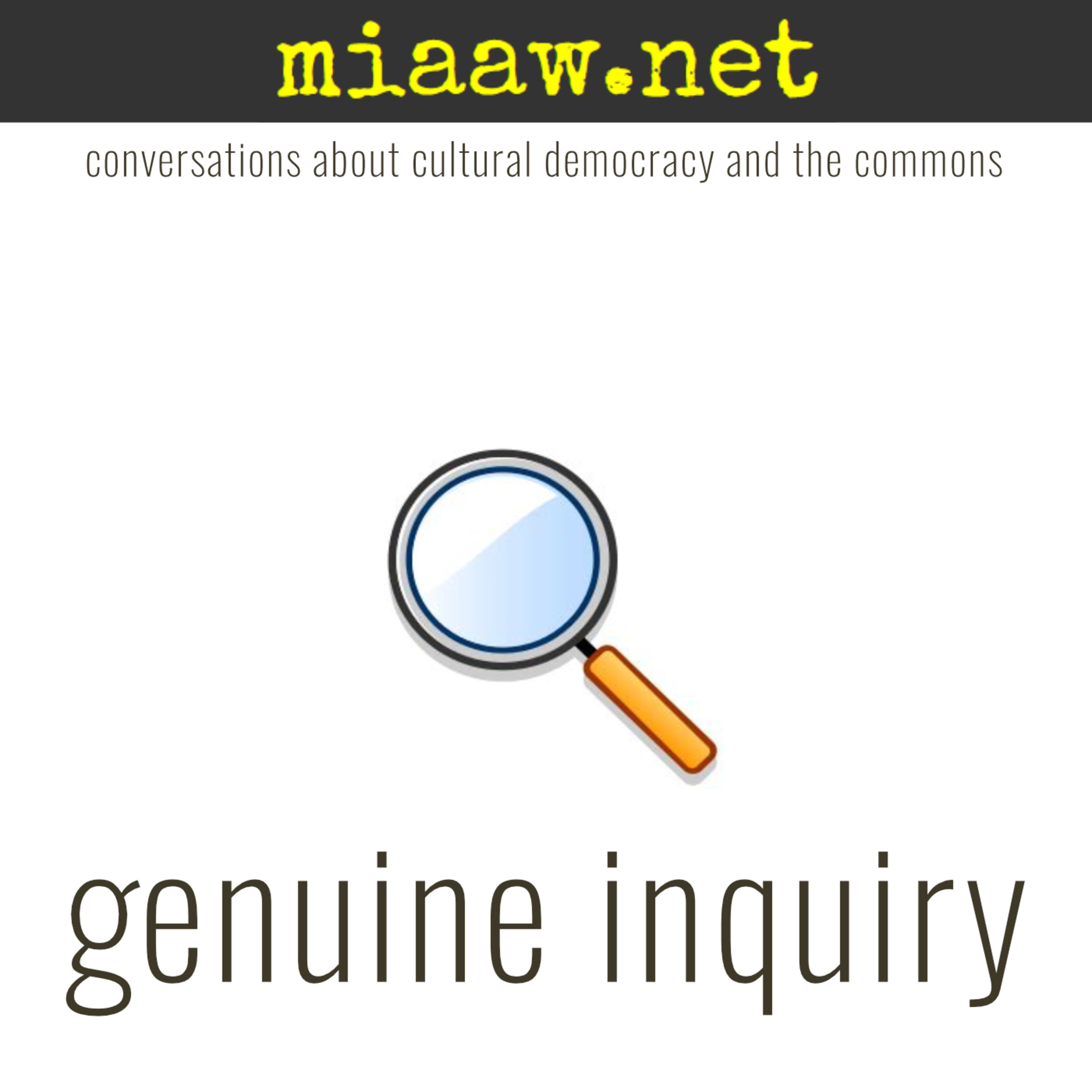
Who was Bhimrao Ambedkar & why is he a powerful example we should learn from?
According to Wikipedia, “Bhimrao Ramji Ambedkar (14 April 1891 – 6 December 1956) was an Indian jurist, economist, social reformer and political leader who headed the committee drafting the Constitut…

Another Angle of Vision
François Matarasso reads a presentation that he originally gave as a lecture in Kirkwall, in Orkney, on 27 September 2014.
He begins by considering the poet Robert Rendall, who “was, like many Orcadi…

Democratic Education
In the first of a 2 part podcast, Professor Ana Laura López de la Torre discusses the history and democratic structures of the Universidad de la República, Uruguay with Sophie Hope.
Ana Laura López d…
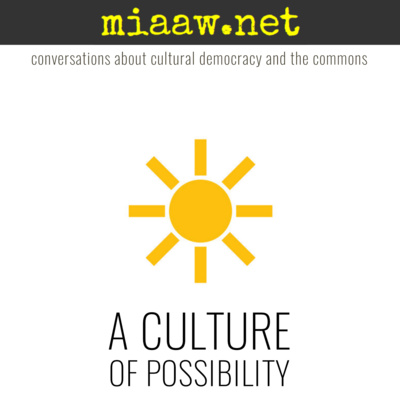
Seeing The Big Picture in Bulgaria
In Episode 22 of A Culture of Possibility, François Matarasso and Arlene Goldbard interview Yuriy Vulkovsky about his decades of experience working with communities and institutions in Bulgaria and n…
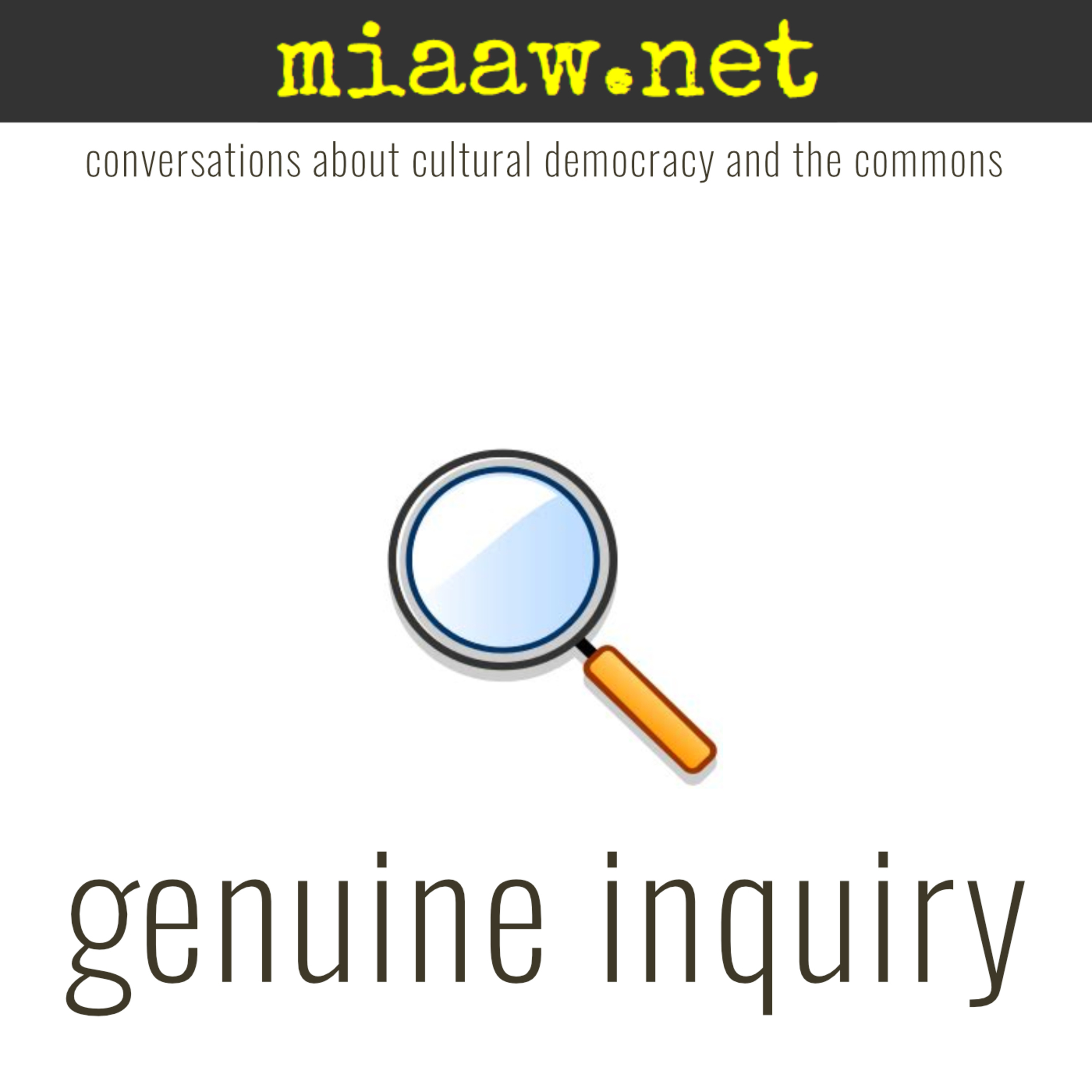
Why do we keep experimenting with ways of living?
Ken Worpole and Owen Kelly discuss the question: why do we always need 'experiments in living' to see what works and doesn't work in how people live and work together? And why do these experiments ne…
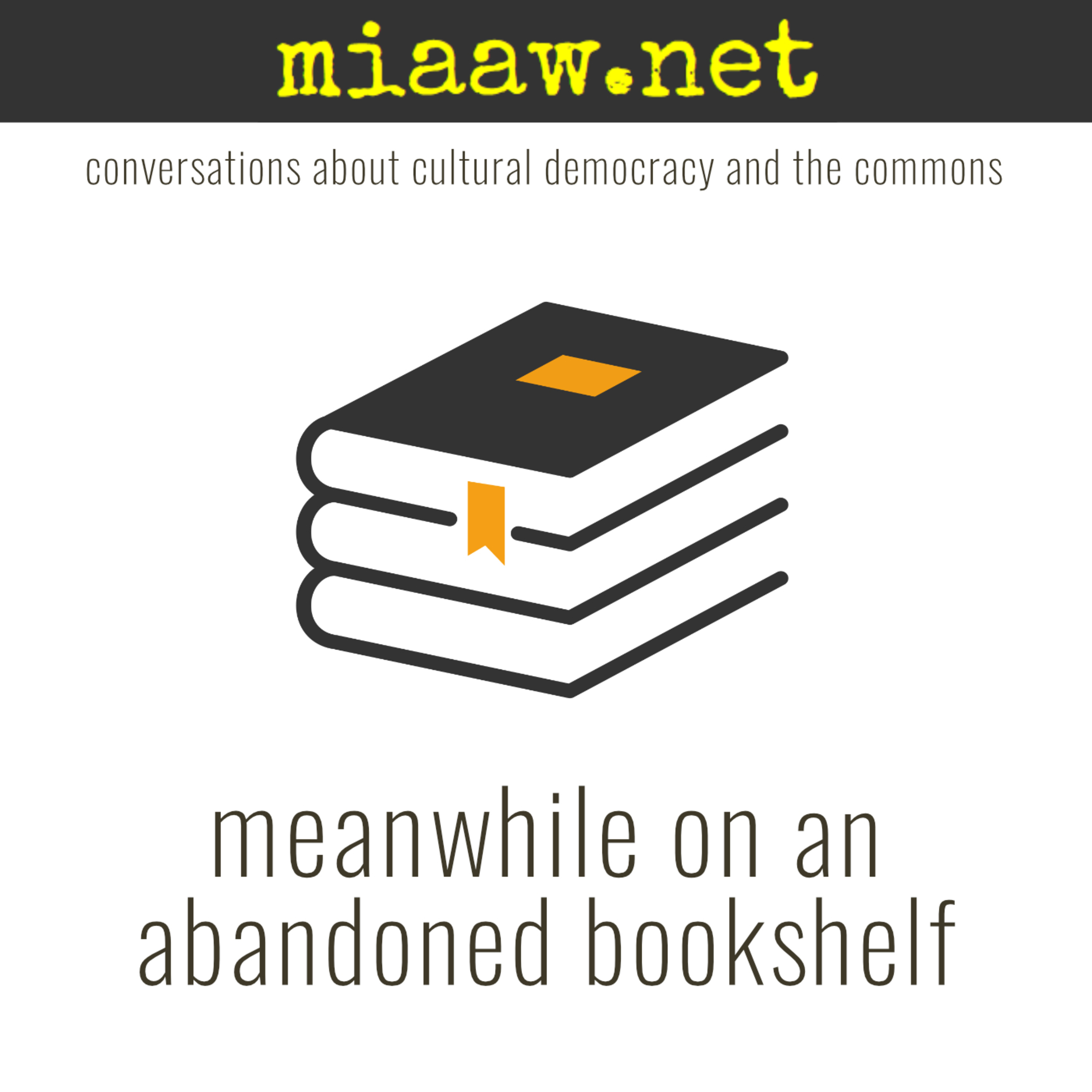
Music and Social Change
In this episode François Matarasso reads a presentation that he originally gave at Handelsbeurs in Ghent in Belgium on 6 October 2015 at the first International Symposium of the Social Impact of Maki…

Gunsmoke: the pacifist
On months that have a fifth Friday we break from our normal schedule and produce something tangentially related to ideas of cultural democracy. In 2022 we delve into the history of radio to bring bac…
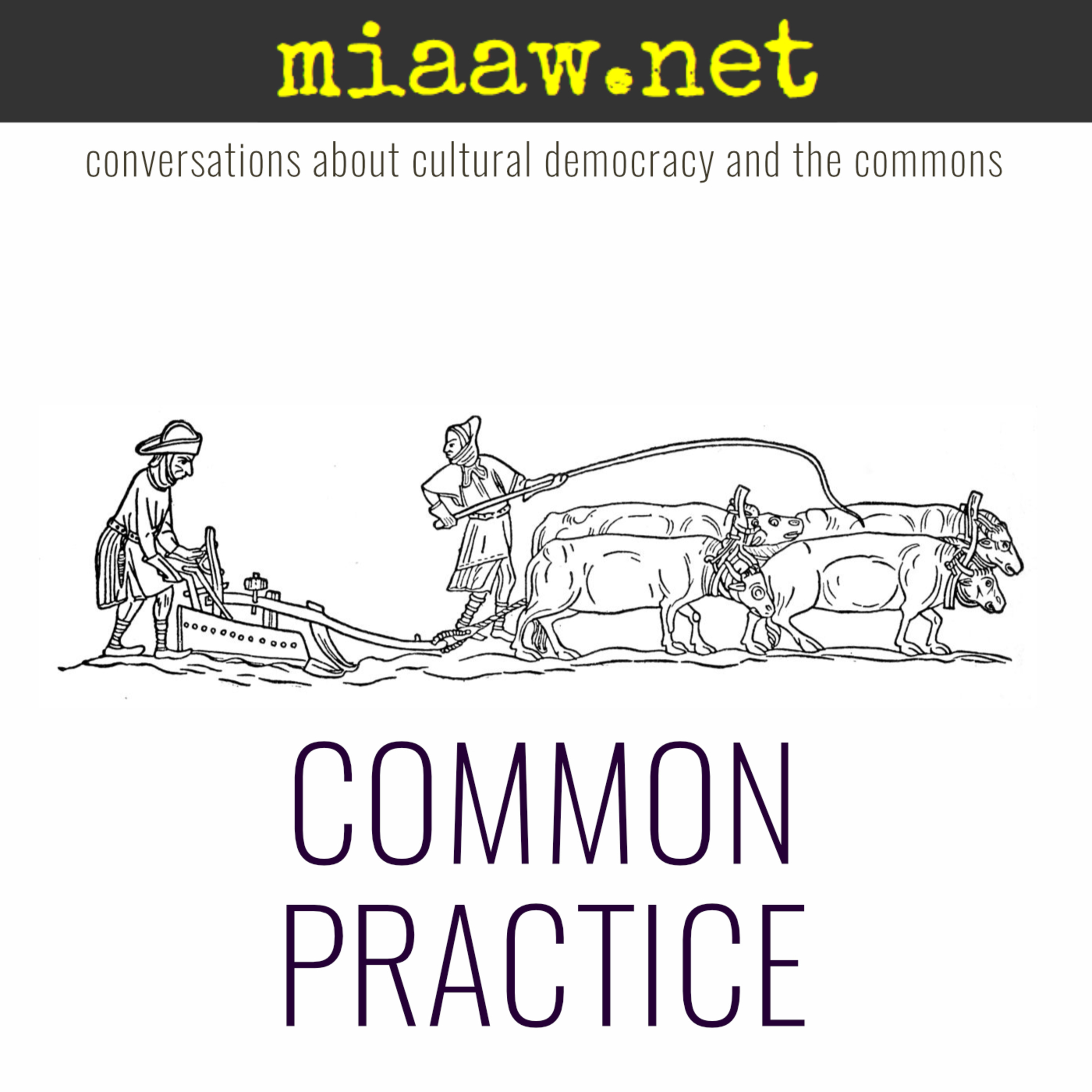
The Archives at Jubilee
Jubilee Arts was a unique community arts organisation based in Sandwell in the Black Country, in the West Midlands of England. The group made a point of documenting their work, which they have worked…
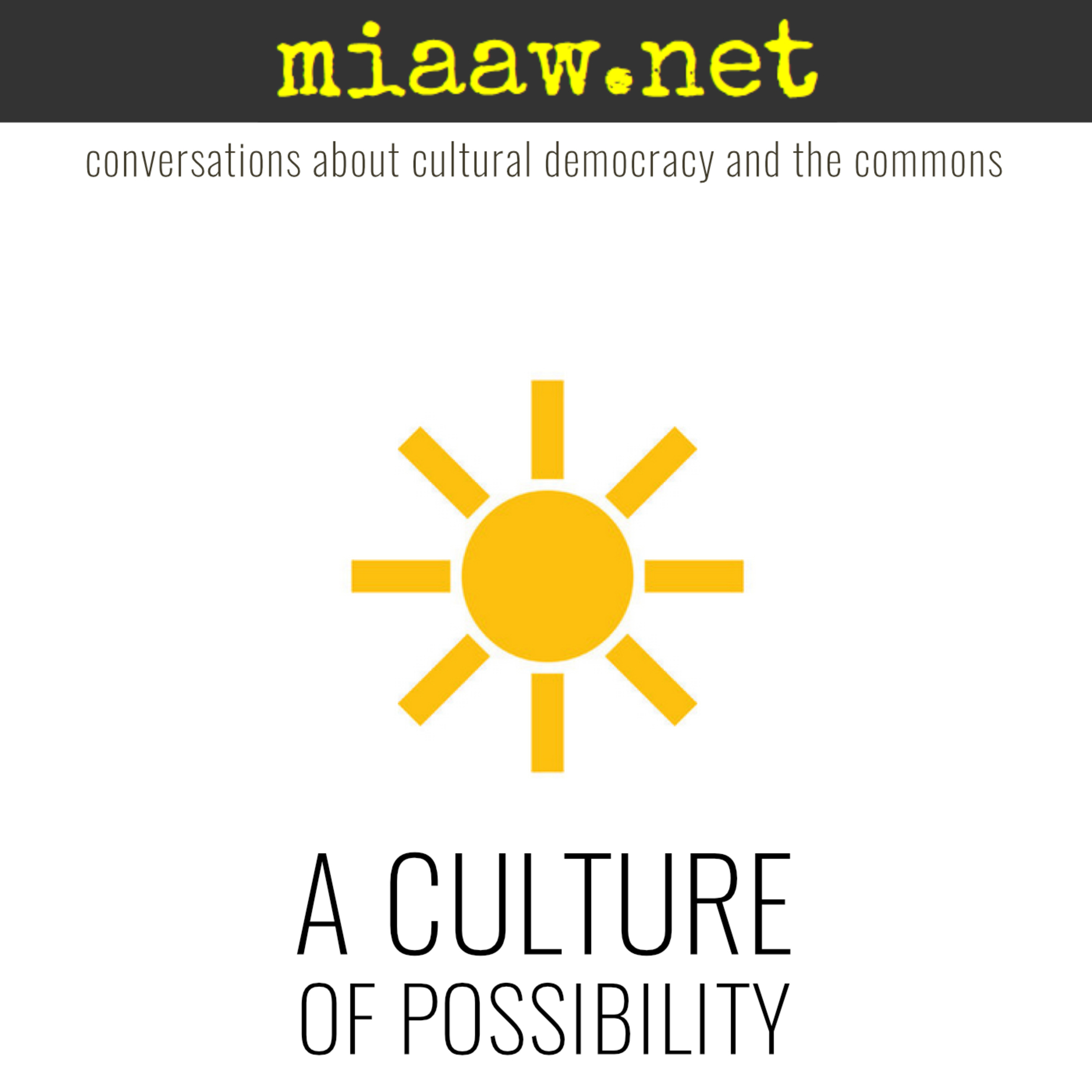
Power is Real
François Matarasso and Arlene Goldbard discuss power in the context of cultural institutions.
For cultural democrats, when does working with institutions promise real change and when does the lumberi…
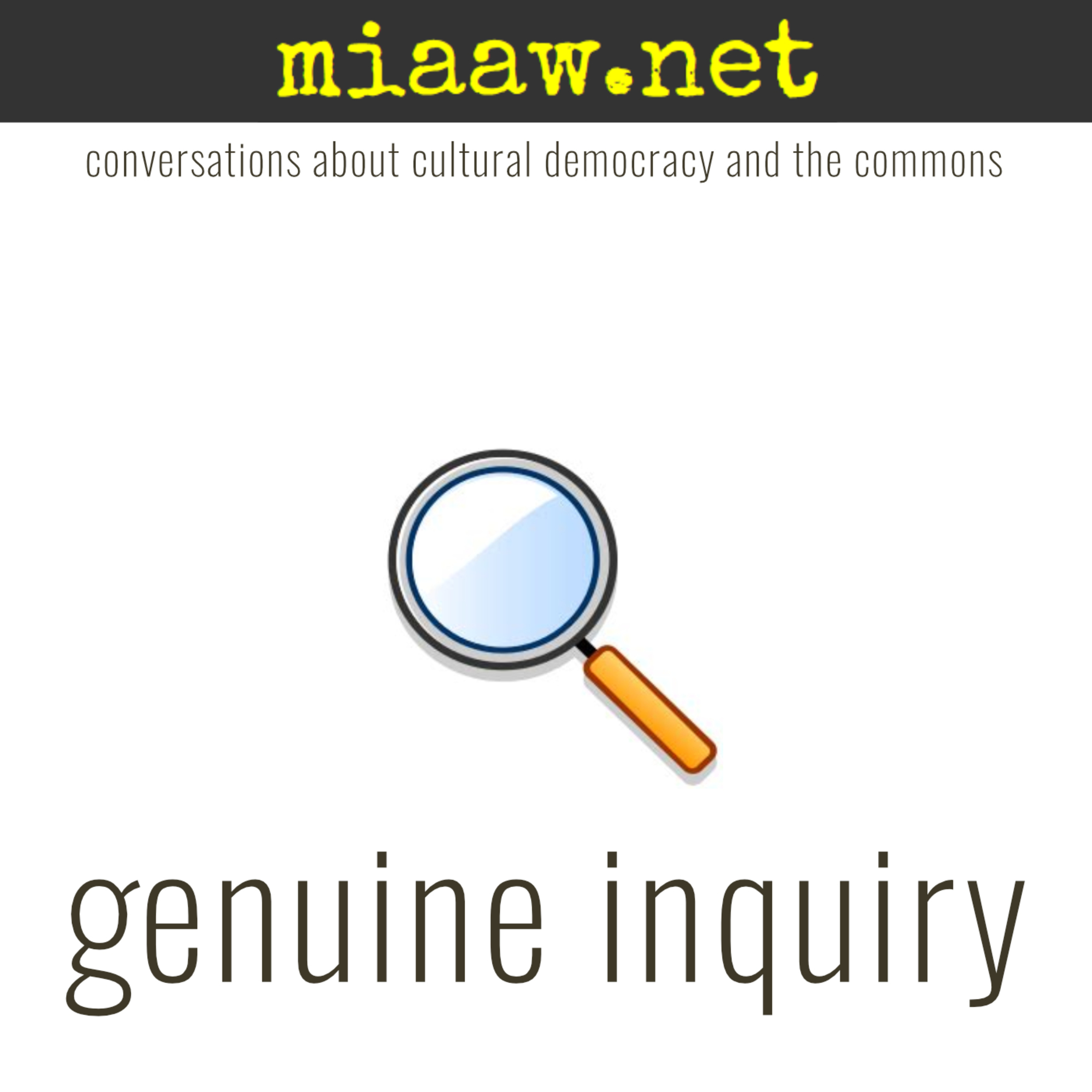
Is terrain theory a conspiracy?
This inquiry has a convoluted beginning. While on holiday in the north of England recently Owen Kelly found himself given a copy of a newspaper called The Light. This seemed at first like the ravings…

Old Words: the Shoreline and the Sea
In this episode François Matarasso reads a revised text of a speech given at the International Congress on Intangible Heritage Policy, at Willibrordhaege, Deurne, The Netherlands, on 16 February 2012…
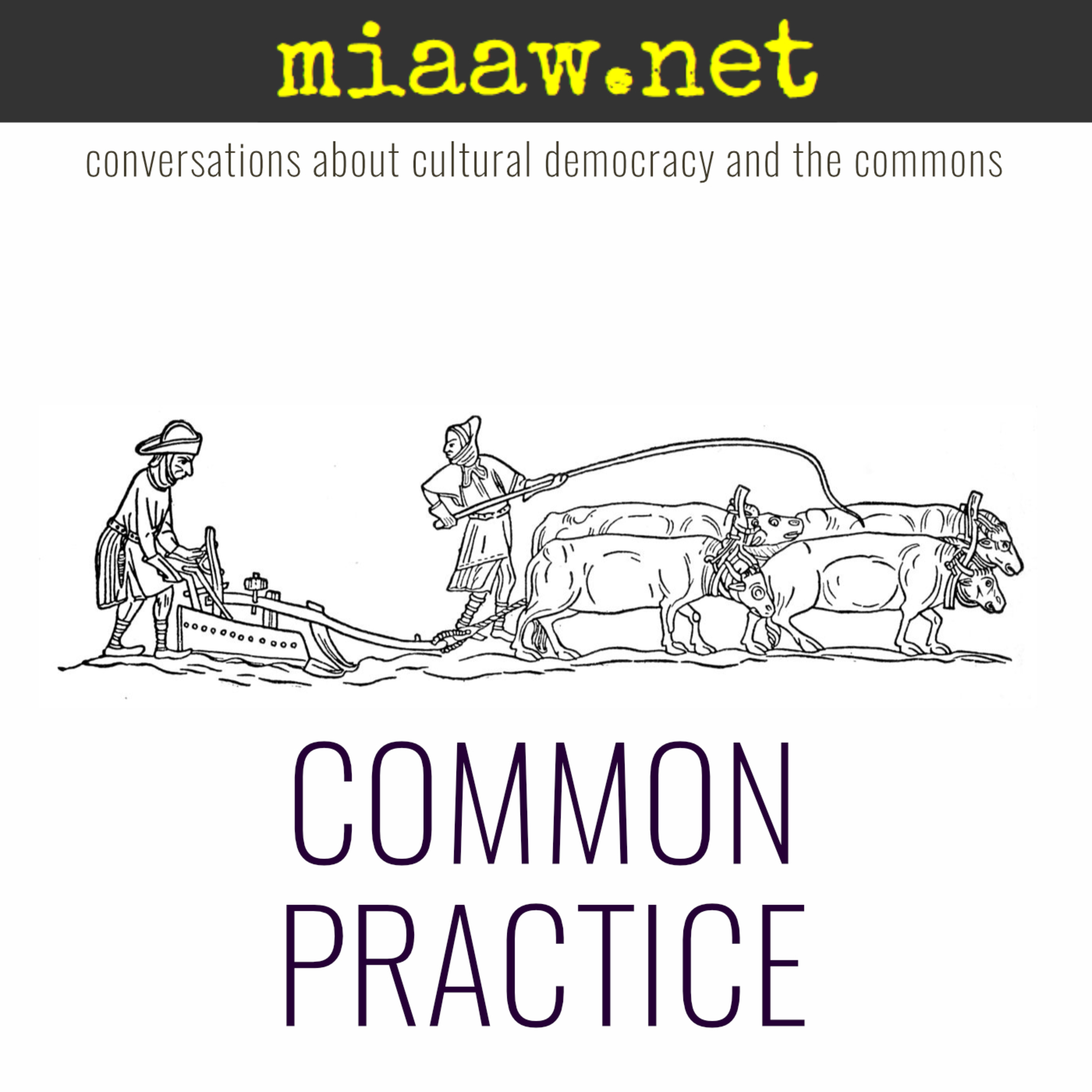
Home and Away
On her website, Arlene Tucker explains her practice like this: “As an artist, diversity agent and educator, I add play elements and awareness to daily life through my art and interactions. Inspired b…
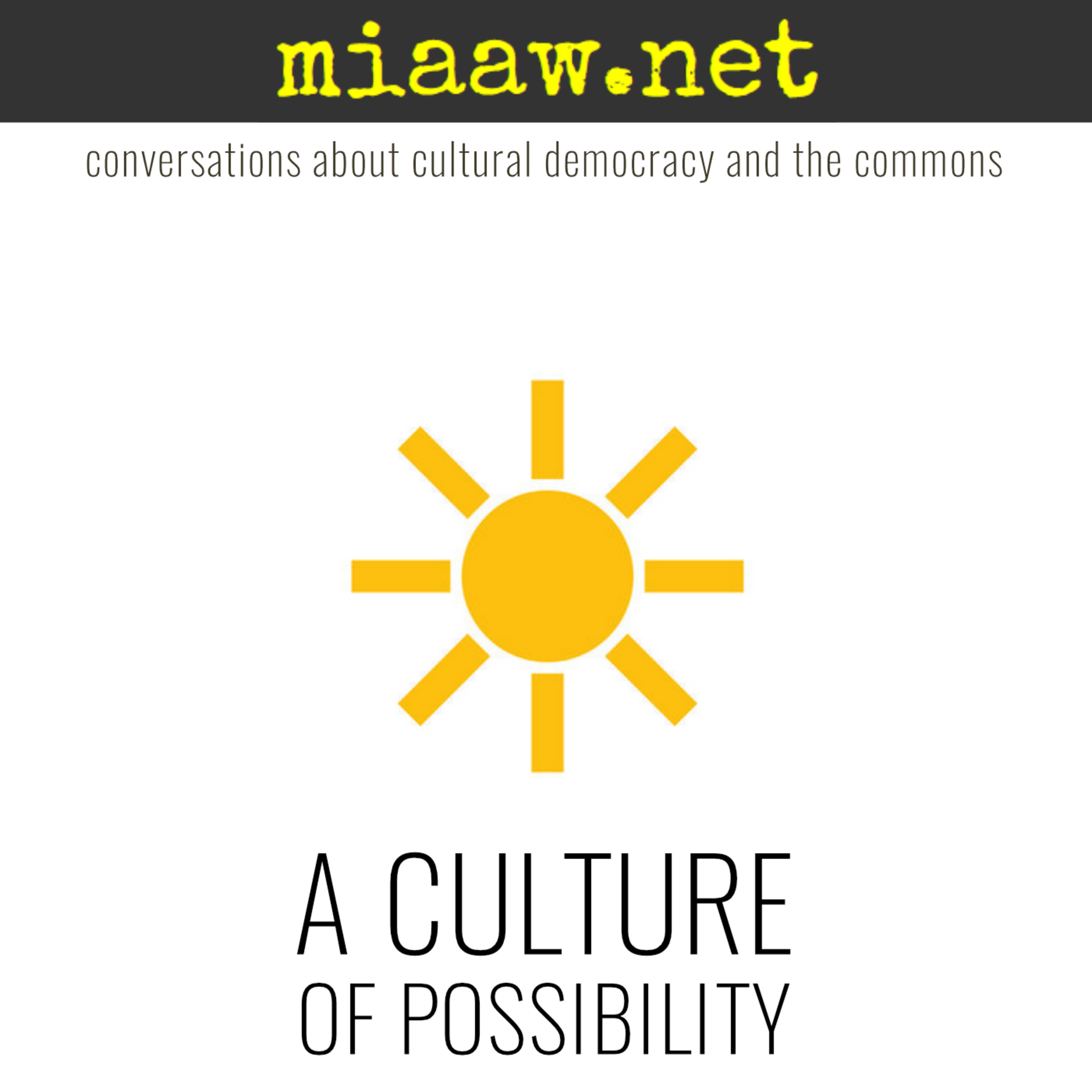
Digital Storytelling: The Power of First Voice in a Digital Age
Joe Lambert is one of the originators of the digital storytelling phenomenon and founder and Executive Director of Storycenter, an international participatory media training and consulting nonprofit …
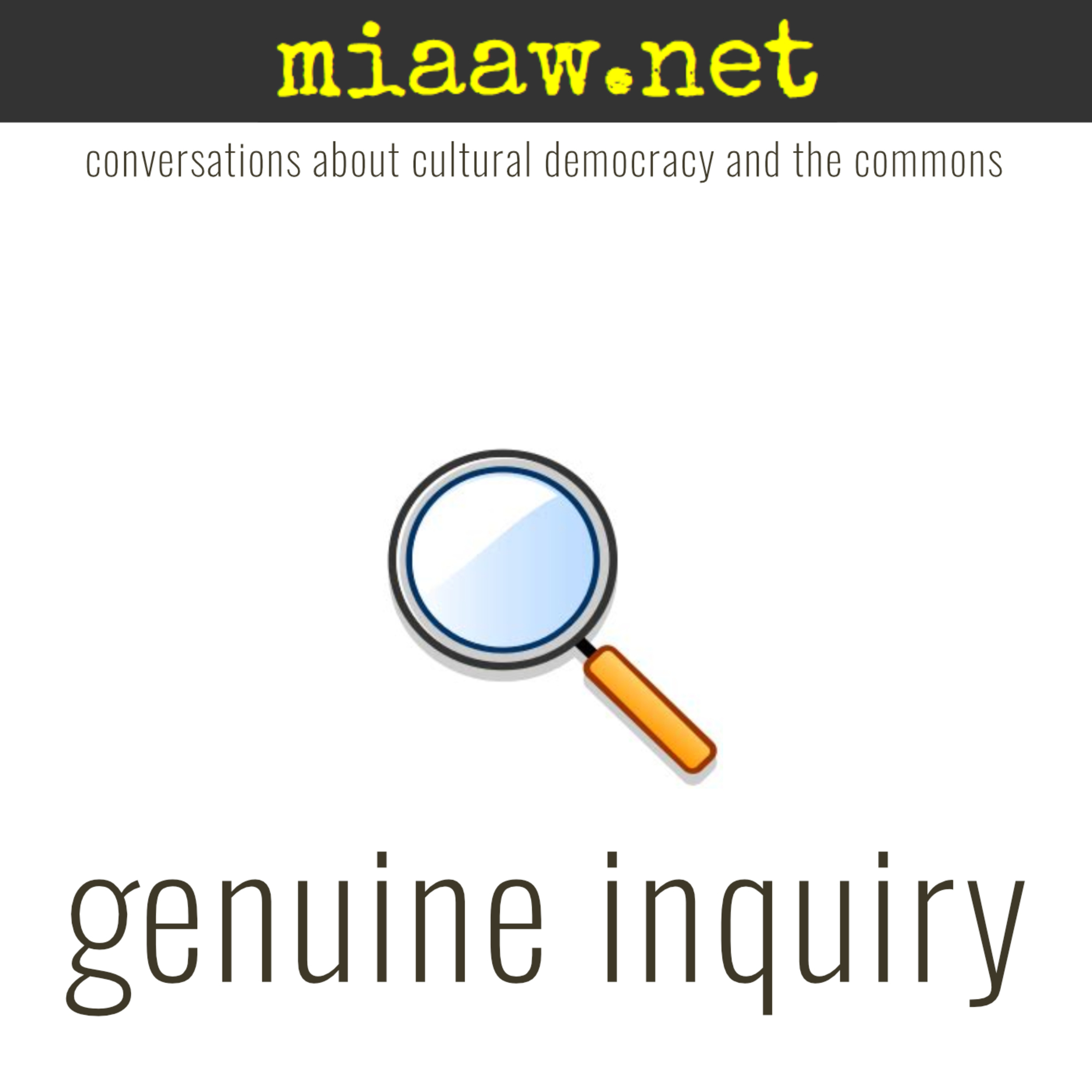
Trapped in the Metaverse
For a short time in the early twenty first century Second Life, and other “virtual worlds” became a matter of general interest. Pundits saw them as the beginning of the 3D web. In the last eighteen m…
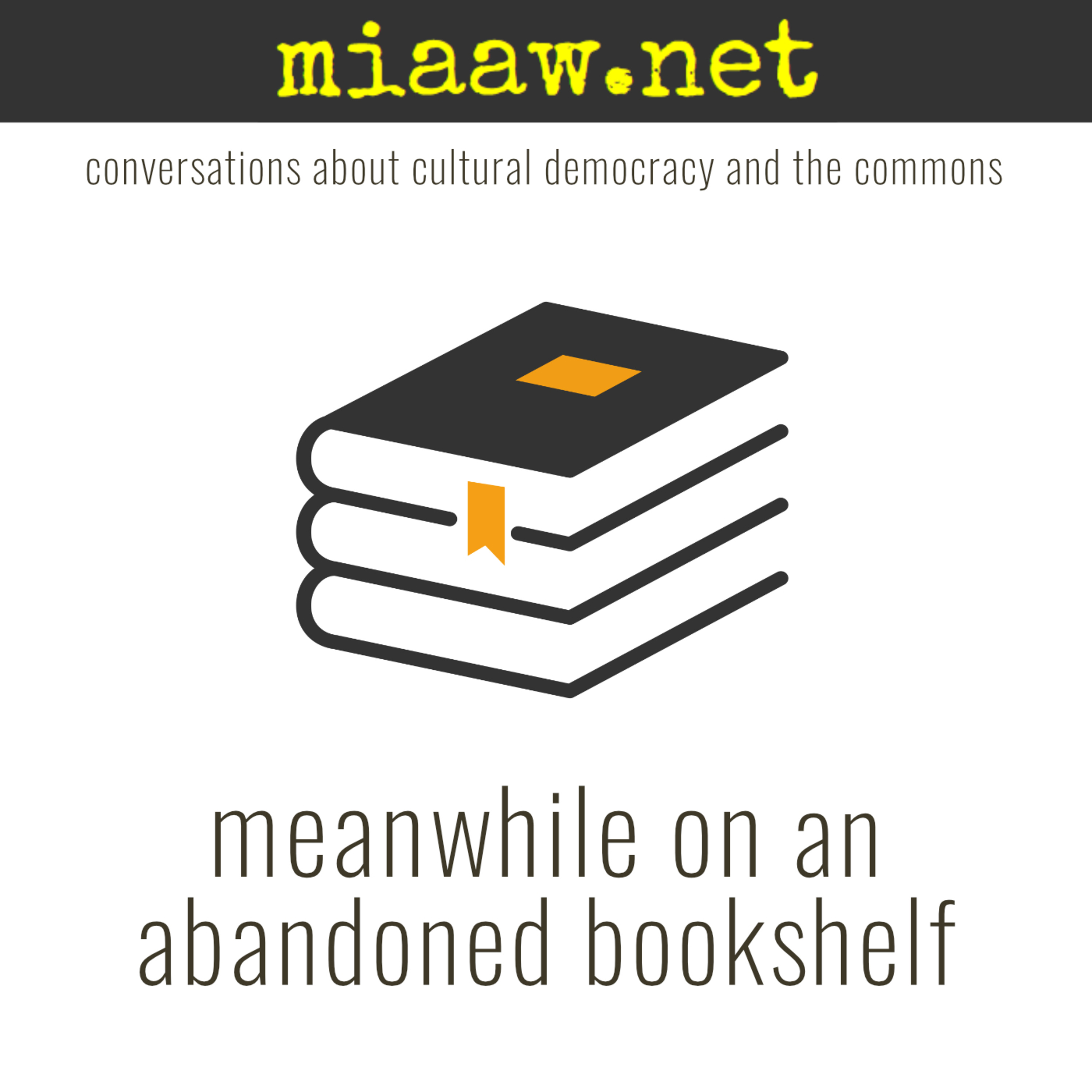
Old Words: Cultural Policy in a post-political age
In this episode, François Matarasso argues that “The values and practices of contemporary European culture are still defined by ideas that emerged during the Enlightenment, and the period of industri…

The Brooklyn Brain
On months that have a fifth Friday we break from our normal schedule and produce something else related in one way or another to cultural democracy. In 2022 we delve into radio archives to bring back…
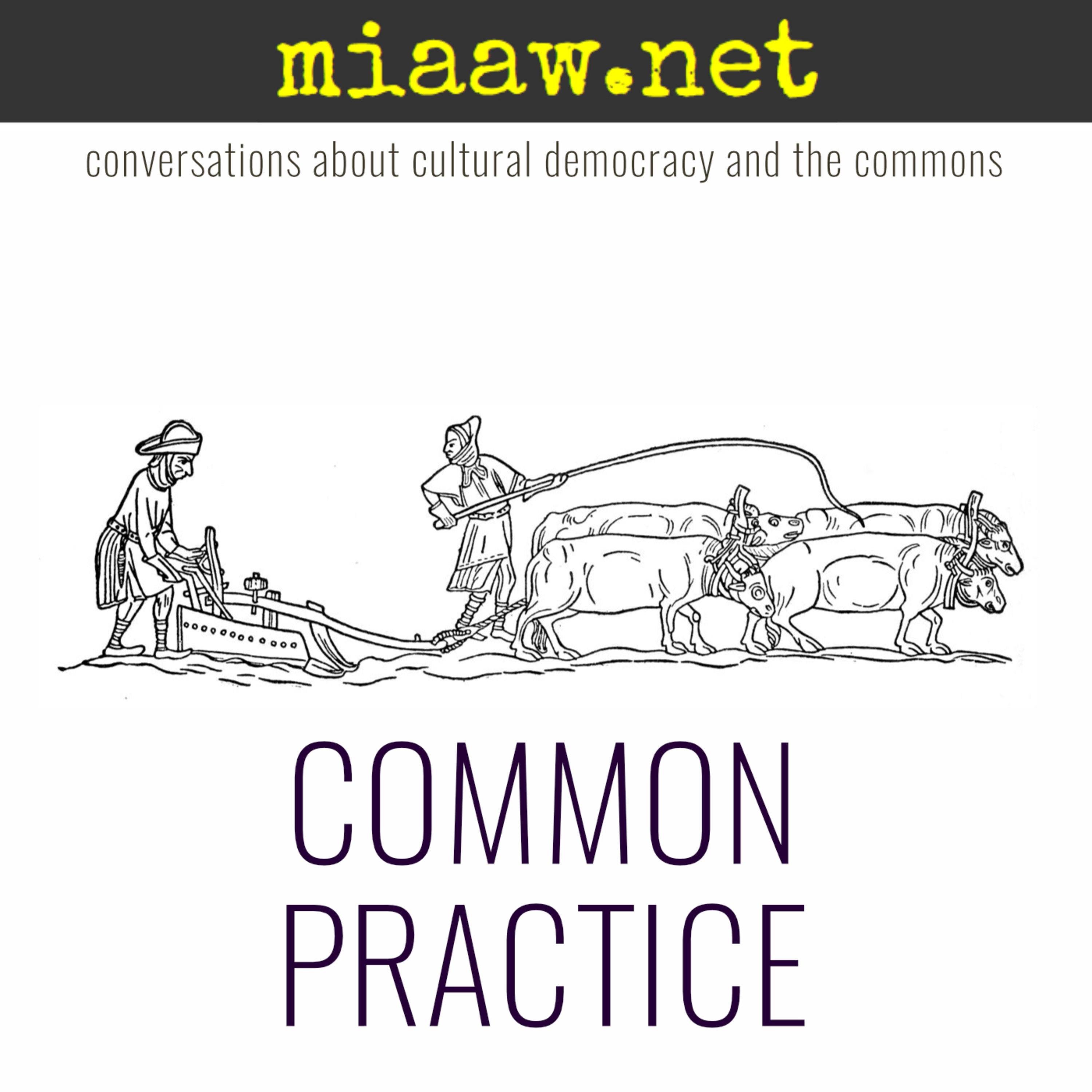
Democracy in the Drawing Shed (again)
A Common Practice episode.
In this episode we delve into the ever-expanding Miaaw archives to catch Sophie Hope in June 2019, talking with Sally Labern, an artist and activist living and working in n…
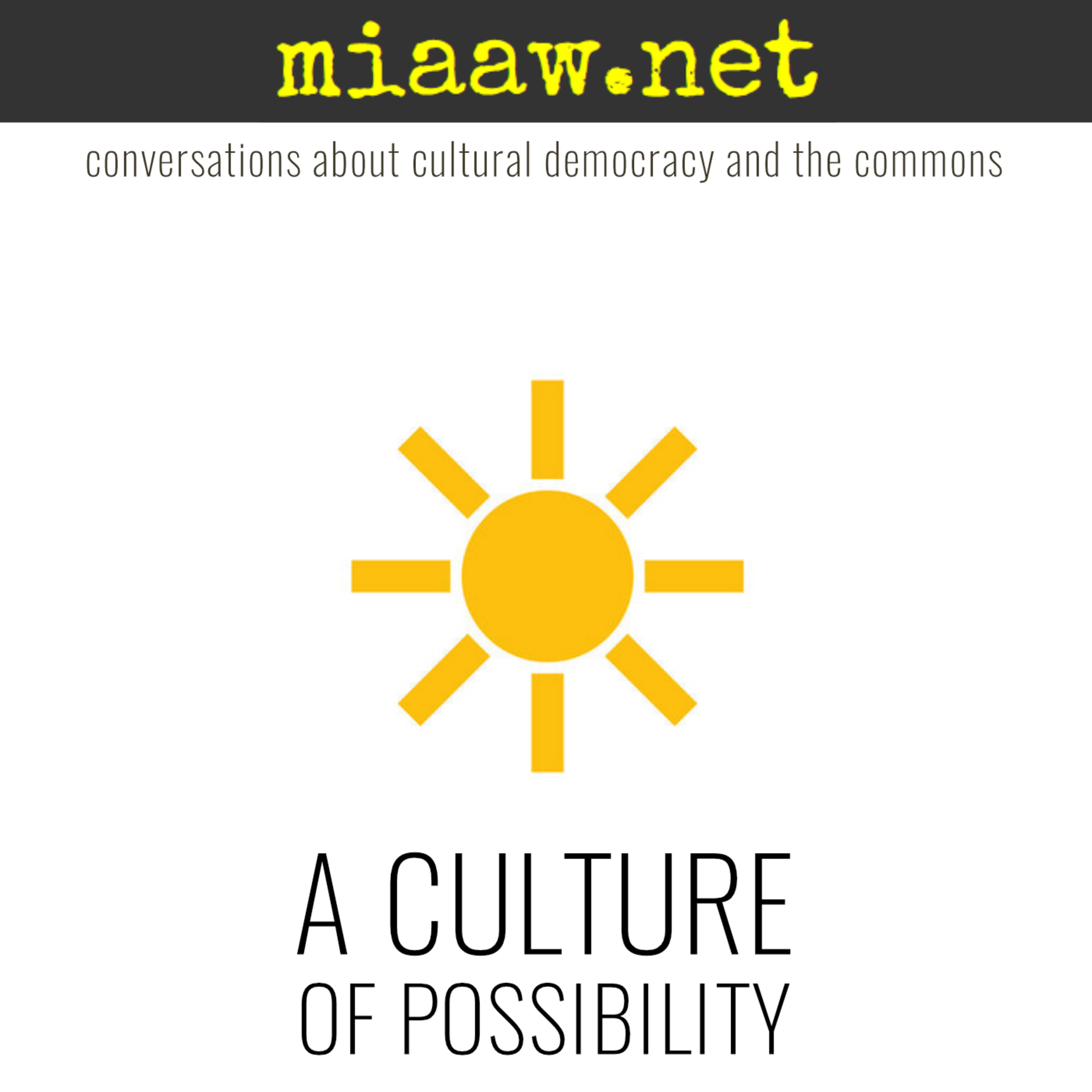
Co-creating Original Opera with Incarcerated Youth
Arlene Goldbard and François Matarasso talk with David Ramy and Bruno Homem of SAMP in Portugal about co-creating original opera with incarcerated youth.
This episode focuses on one of three projects…
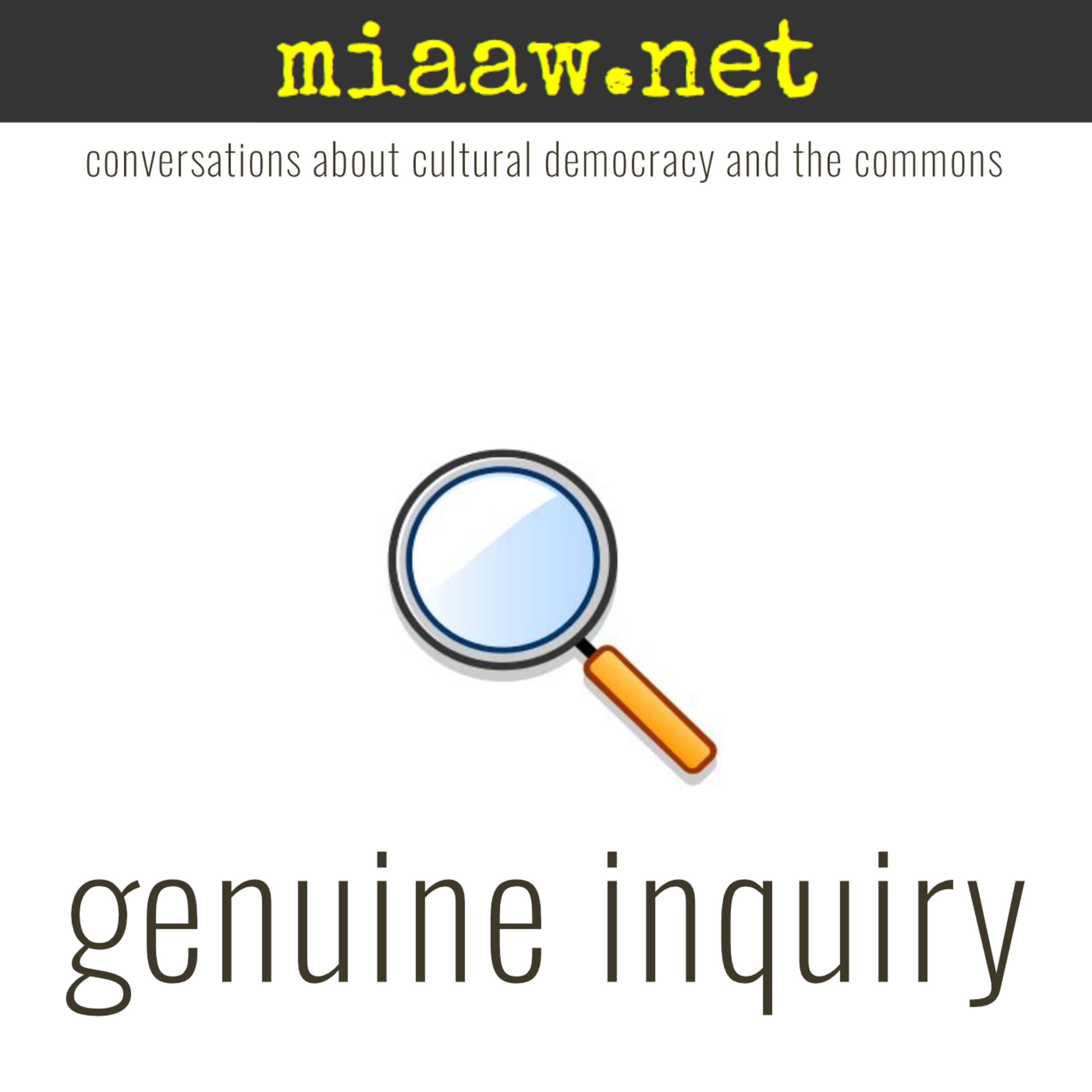
Cultural democracy & politics
This episode concludes a four-part series within a series. This began in Episode 16 of A Genuine Inquiry when Owen Kelly inquired into a key question that has hovered over every one of our podcasts: …
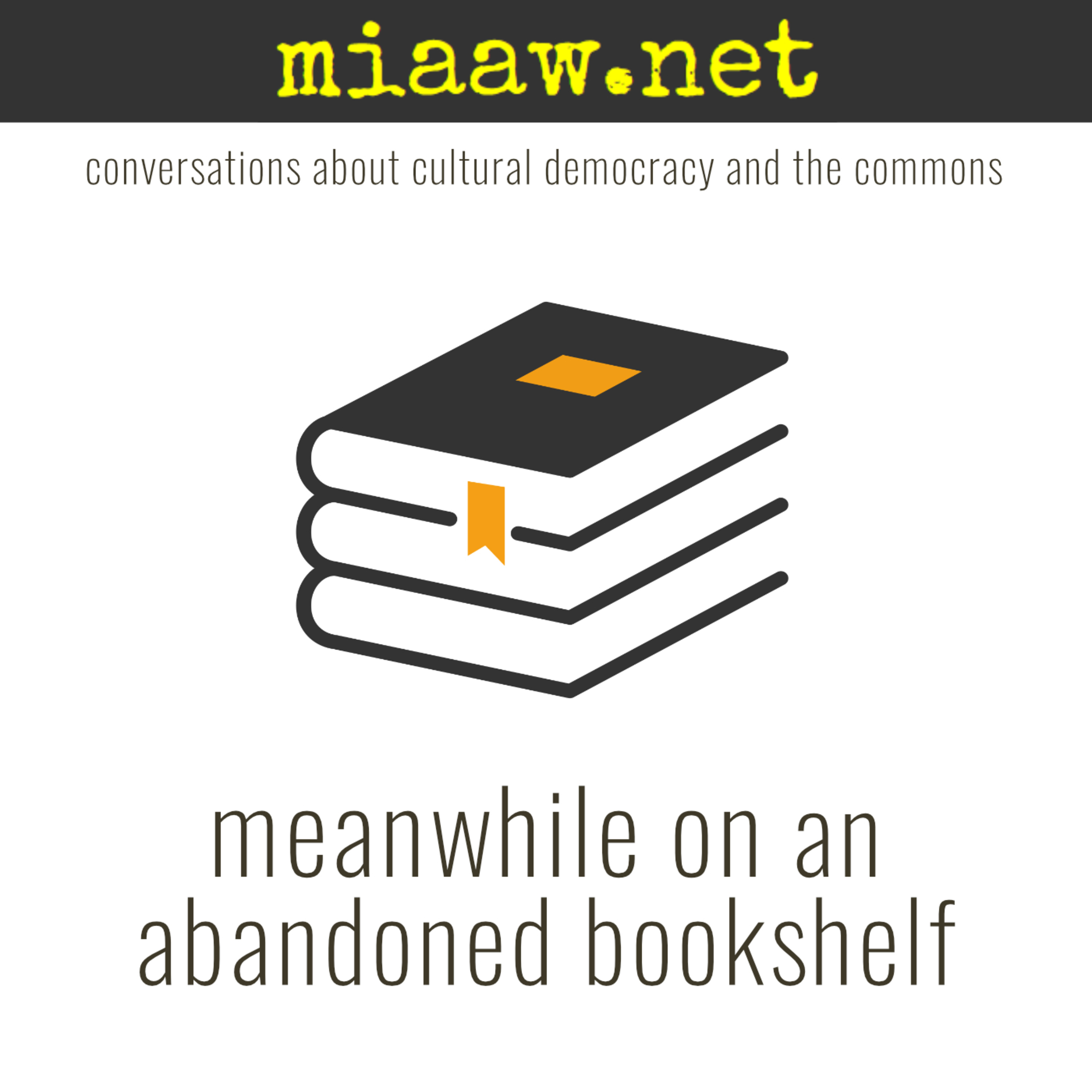
Old Words: Playful Adventures
In this episode François Matarasso asks “Why is our childhood not a good guide to our children’s?” He notes that, growing up in the 1960s, he had only ”two television channels, offering just an hour …